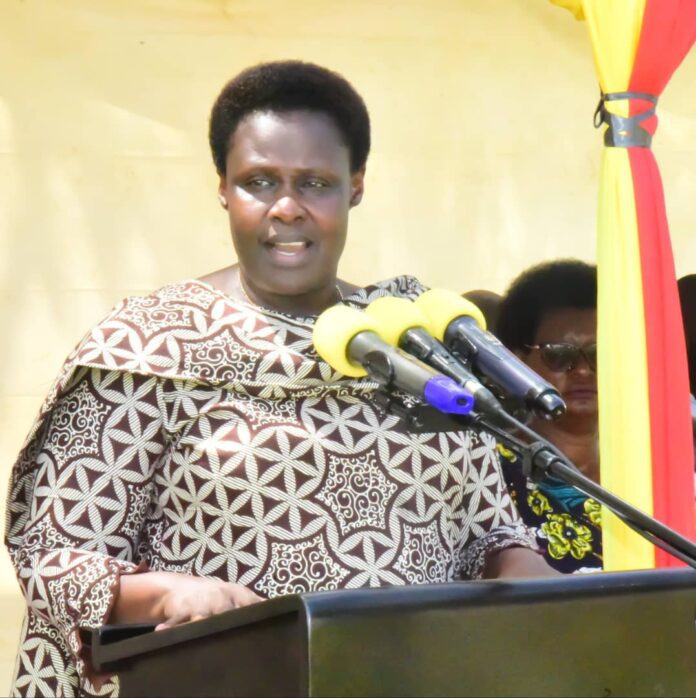
The Vice President of Uganda, Jessica Epel Alupo, has emphasized the urgent need for sustainable agricultural practices to attain food security in the face of climate change in a country. This can be achieved through sustainable farming practices that are aimed at meeting family and market needs.
Speaking at the 44th World Food Day celebrations held at the National Semi-arid Resources Research Institute (NaSSARI), Serere district, on Wednesday, October 16, 2024, Alupo told the masses that there was a need to improve food safety standards and promote nutrition-sensitive agriculture aimed at combating malnutrition among children and vulnerable populations.
NaSSARI, located in Serere district, Eastern Uganda, has been operational for 102 years, and October 16, 2024, marked the release of two varieties of beans and groundnuts with a mission to generate, package, and disseminate appropriate agricultural production technologies and information for improved and sustained integrated crop and natural resources management in partnership with other stakeholders.
Alupo commended the institute together with other research institutes for developing climate resilience crop varieties that are both nutritious and productive, indicating food as a basic human right as a cornerstone of a country’s national development agenda.
“Stakeholders should embrace climate-smart agriculture to ensure a food-secure future for Uganda,” Alupo said.
Read Also: Uganda’s Agriculture Ministry Calls for Adoption of Modern Agriculture for Food Security
She added that as a country walks toward increasing agricultural production, climate change has continued to impact food systems, necessitating better approaches to food production and post-harvest handling. She made this reiterating President Museveni, who urged farmers, researchers, policymakers, and the private sector to adopt resilient agricultural practices suitable to Uganda’s economy.
“Our country, Uganda, remains committed to smart agricultural practices that ensure sustainable food production in the face of climate change,” Alupo said.
The event was organized by the Ministry of Agriculture, Animal Industry, and Fisheries in partnership with research institutes, including the National Semi-arid Resource Research Institute and International Partners, under the theme Right to Food for a Better Life and a Better Future.
The government aims at making the country a market leader in the generation and dissemination of appropriate agricultural technologies for sustainable development in semi-arid regions that cover the cattle corridor and five other agro-ecological zones comprising the Eastern Savanna (Teso) region, Karamoja dry lands, Lango, Acholi, and west Nile sub-regions.














